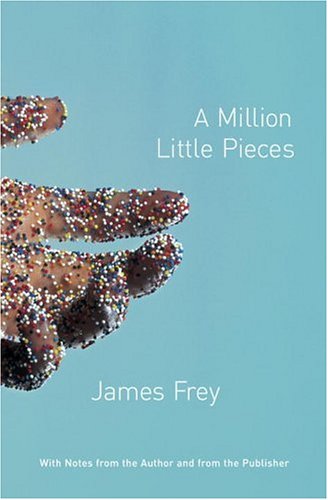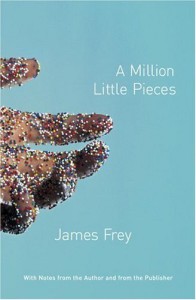It is with pride and joy that I report the following: I just finished my eighth book of 2012.
I’m proud to have finished because a) it’s 432 pages, making it the longest book I’ve read in my entire life and b) as a book exactly zero percent of me wanted to read, finishing it was a feat of strength. I am joyful because having finished it means I am finally free to jump back into the stack of books of I actually want to read.
As I understand it, the book is part memoir, part fiction but was originally marketed as all memoir, which put it and its author, James Frey, at the center of a controversy that heavily involved Oprah. (Long story.) The book, written in the present tense (which is so not my preference for books), is about Frey’s six weeks in a treatment center for drug and alcohol addiction.
As aforementioned, I really didn’t want to read the book. I don’t read fiction. And even if it had turned out that every one of Frey’s words in the book were true, it simply isn’t a book in which I would have much interest. I read it because to do so is part of an assignment for the substance abuse class I’m taking this semester. While I didn’t dislike all of it, there isn’t much to report other than a) Frey dropped too many F-bombs for my taste, b) it does depict what the mind might be like of a person who is dependent on drugs or alcohol and c) the part in which Frey’s friend and fellow treatment center resident Matty uses words like “grasshole” when he’s mad, because he’s trying to stop swearing, is hilarious.
– – – – –
Click here to read about all the books I read in 2012.





